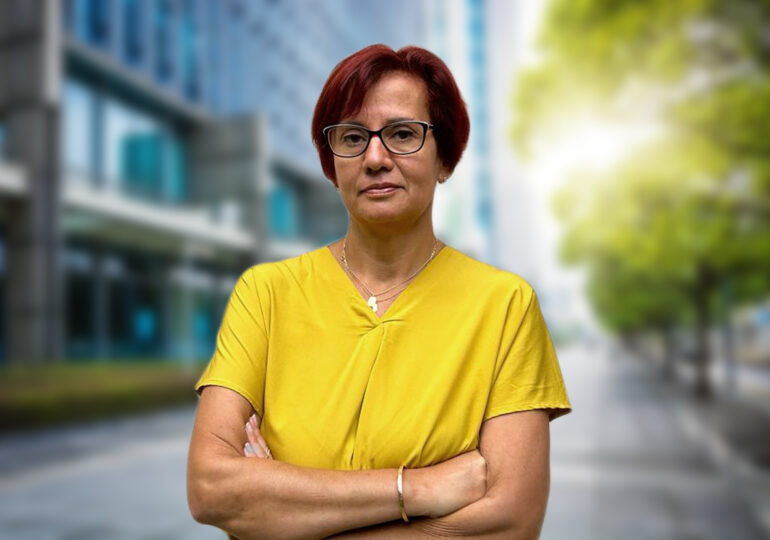The ordeal of the family from Timișoara subjected to 20 years of torture in every way by violent neighbors, who would like to force them to give up their property, without any state institution helping them, is not an isolated case in the city on the Bega River.
It is a modus operandi for mafia clans. First, there was the Cârpaci clan, which after 1989 managed to forcefully and through forgery take hold of 144 properties, including a wing of the Children’s Hospital.
The leader of the clan was sentenced to 7 years in prison, but the practices continue. Recently, the Cârpacii occupied a street in Timișoara and blocked it with a gate. When it was demolished, the new leader of the clan threatened the police and the mayor with "the big guys from the prosecutor's office in Bucharest?"
There is also the Cămătarilor clan in Timișoara, which has left people without homes and ruined the lives of dozens of Timișoara residents.
How is it possible for gangsters to make the law, terrorize, and take whatever they want?
It is possible when the Police and the Prosecutor's Office are weak, if not worse.
The city terrorized by gangsters is the legacy left in Timișoara by the current Attorney General, Alex Florența, head of the local DIICOT structure before coming to Bucharest. That is, the exact prosecution structure that should have fought organized crime.
How exactly did it fight?
The Cămătarilor case, resulting in a damage of 2 million euros and immeasurable suffering of the victims, some of whom died because of them, was closed at DIICOT Timișoara by Mihai Șandor, the right-hand man of Alex Florența, who as DIICOT chief prosecutor confirmed the decision of the case prosecutor.
The decision, which allowed forced executions and much misery, raised suspicions of corruption. The SIIJ was notified, the only competent structure at the time to investigate magistrates, which opened file 62/P/2018. The case prosecutor, at least initially, was Mihaiela Iorga Moraru.
What has become of this case, who is handling it now, no one knows, not even the victims, who requested information from Attorney General Florența in May 2023. They have not received it.
I asked at PICCJ earlier this year, but since it is a very sensitive case for Mr. Florența, PICCJ suddenly discovered the rule that no information is given about ongoing cases. Therefore, we deduce that the case is still ongoing.
Just like the case of abusive investigation against the Attorney General, accused of undressing and beating a suspect, opened in 2019 (no. 780/P/2019, became at SUPC no. 1636/P/2022) and also handled by Mihaiela Moraru Iorga. We extensively covered both cases earlier this year.
Hundreds of people left without homes remain without hope of justice due to the closure decided by Prosecutor Șandor and confirmed by Prosecutor, now General, Florența, and also due to the freezing of the case at SIIJ. Their homes snatched by the Cămătari have become guarantees for huge bank loans, in other words, an immense octopus.
But even at the top of the Public Ministry, Mr. Florența is not excelling. Among foreign visits, some quite exotic in very pleasant company, among pension unionism, the term of the Attorney General has not marked any evident revitalization of the General Prosecutor's Office's activity.
The reform meant cutting a letter from the Criminal Prosecution Section left without Forensics (from SUPC it became SUP), which, with Mr. Florența's blessing, gained an extremely controversial chief rejected with horror by the prosecutor section of CSM after an interview in which he stated, for example, that the balance sheet of his work as a prosecutor is irrelevant for the position of SUP chief. And that's about it. Nothing appears in the report for the past year.
Regarding the police, there is probably not much more to say. It does not hunt down the criminal clans but guards them, bodyguards in uniform and on public money. We saw it in Bucharest, in the case of Pian, we saw it in Iași, when Costel Corduneanu was buried.
Who should the gangsters, the clans, fear? Who should defend and bring justice to the tormented people, like the family from Timișoara who refuse to abandon their home?
Not only in Timișoara, but throughout the country, the honest man, without connections, with the sole expectation of having a decent and predictable life, is abandoned and betrayed by institutions paid with his money and left to fend for himself.

